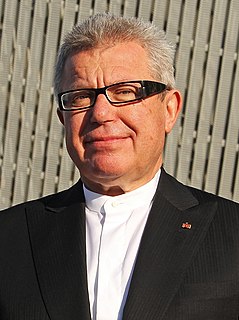A Quote by Eric Kandel
The brain is a complex biological organ possessing immense computational capability: it constructs our sensory experience, regulates our thoughts and emotions, and controls our actions.
Related Quotes
When we align our thoughts, emotions, and actions with the highest part of ourselves, we are filled with enthusiasm, purpose and meaning. Life is rich and full. We have no thoughts of bitterness. We have no memory of fear. We are joyously and intimately engaged with our world. This is the experience of authentic power
Today, when we look at a brain, we see an intricate network of billions of neurons in constant, crackling communication, a chemical labyrinth that senses the world outside and within, produces love and sorrow, keeps our hearts beating and lungs breathing, composes our thoughts, and constructs our consciousness.
Psychologists tell us we think 50,000 thoughts a day...between 1,000
and 5,000 thoughts in a single hour. Many of those thoughts are about
ourselves and about our performance, about our lovability, our capability
and our significance. So the key is to control those thoughts, making
certain they're always positive.
In the space between stimulus (what happens) and how we respond, lies our freedom to choose. Ultimately, this power to choose is what defines us as human beings. We may have limited choices but we can always choose. We can choose our thoughts, emotions, moods, our words, our actions; we can choose our values and live by principles. It is the choice of acting or being acted upon.
?Reading good literature is an experience of pleasure...but it is also an experience of learning what and how we are, in our human integrity and our human imperfection, with our actions, our dreams, and our ghosts, alone and in relationships that link us to others, in our public image and in the secret recesses of our consciousness.
We are completely unaware of our true nature because we identify ourselves with our body, our emotions and our thoughts, thus losing sight of our unchanging centre, which is pure consciousness. When we return to our true nature, our thoughts and perceptions no longer appear as modifications of a single substance, they come into being and subside like waves of the ocean.
Even though its common knowledge these days, it never ceases to amaze me that all the richness of our mental life - all our feelings, our emotions, our thoughts, our ambitions, our love life, our religious sentiments and even what each of us regards us his own intimate private self - is simply the activity of these little specks of jelly in your head, in your brain. There is nothing else.
The last 100 years of research into the human brain...sees the brain as an organ that works by physical principles just like the other organs in the body...our emotions and higher callings, such as religion, as well as our grubby low-level physical systems like stereo vision and motor control, are products of a machine.



































